Do you need to go to drug and alcohol rehab at St. Helens? Will it be helpful for you?
Our guide to addiction and rehab will show you how you can benefit from addiction treatment.
You’ll learn how to find out if you have an addiction, how rehab works and what to do once you finish your treatment programme and leave the clinic.
What is the definition of drug and alcohol addiction?
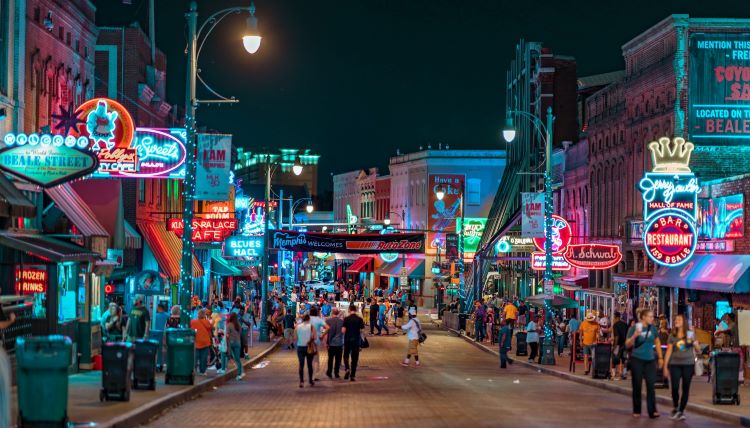
Here in the UK, addiction is more common than you may think.
If you have an addiction to drugs or alcohol, you may not have control over your behaviour around these substances even if they are harming you. [1]
You may use them too frequently, use illegal and dangerous drugs, take more than you should or a combination of all three.
Even if you want to stop using drugs and alcohol, you may be unable to.
Some studies indicate that addiction may be genetic, as you are more likely to develop an addiction if you have a close family member with one.
It may also be due to brain structure, trauma, stress or other factors. No one knows for sure what causes an addiction.
An addiction should not be treated alone – instead, you should seek help and support at a professional drug and alcohol rehab in St. Helens.
At OK Rehab, we offer free advice from a team of non-judgemental professionals, many of whom are in recovery and understand how hard it can be to change your relationship with addiction.
Simply reach out to our 24/7, confidential hotline on 0800 326 5559.
How do I know if I have an addiction to drugs or alcohol?
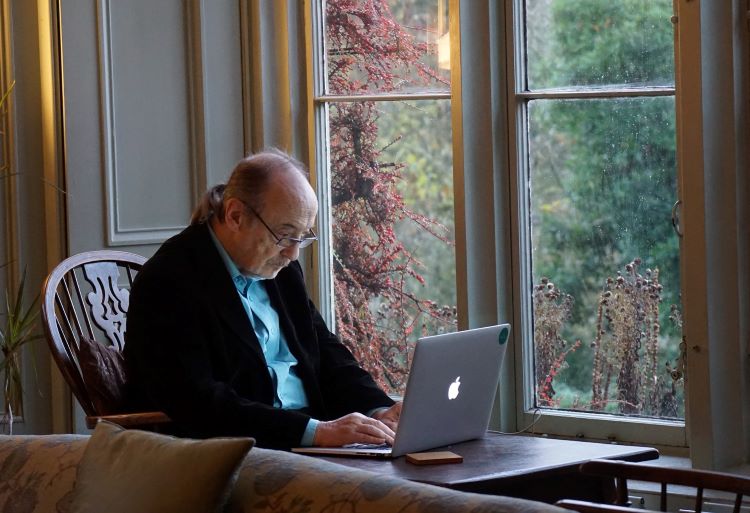
If you are concerned that you may have a drug or alcohol addiction, you should speak to your doctor and seek a professional diagnosis.
They may use several different methods to diagnose you, but the most common way is by using the DSM-5’s 11 official criteria for addiction.
The Diagnostic and Statistical Manual of Mental Disorders (DSM-5) has a list of criteria that are present when someone has an addiction. [2]
Your doctor will check these criteria against your symptoms to determine whether you have an addiction.
The 11 criteria of addiction are listed below:
- Hazardous use: using the substance in dangerous ways, both to yourself and those around you
- Social or interpersonal problems related to use: your substance use has caused issues between yourself and others
- Neglected major roles to use: prioritised substance use over other responsibilities
- Withdrawal: experiencing withdrawal symptoms when you stop using the substance
- Tolerance: you need to use more of the substance to get the same effect
- Used larger amounts/longer: You use more of the substance and for longer amounts of time
- Repeated attempts to control use/quit: you have tried to stop using the substance but continue to use it
- Much time spent using: you spend large amounts of time using the substance
- Physical or psychological problems related to use: the substance use has caused physical or mental health problems
- Activities given up to use: you have used substances instead of engaging in other hobbies and activities
- Craving: you experience cravings for the substance when you are not using it
If you show two or more of the above criteria within a 12-month period, you may be diagnosed with an addiction.
What happens at drug and alcohol rehab in St. Helens?

There are three main stages of drug and alcohol rehab in St. Helens – detox, counselling and relapse prevention.
Detox
Most substances require a full detox before healing and recovery can take place.
This means that you will be given a personalised detox plan to follow, which will allow you to slowly taper off over 7-10 days. This slow and gradual process can help you to avoid many of the more uncomfortable withdrawal symptoms.
You may experience nausea, vomiting, tremors, sweating and many other signs of withdrawal. These should peak and pass within 72 hours.
The benefit of drug and alcohol rehab is that you will be observed and monitored throughout the process to keep you safe.
At OK Rehab, we offer free advice from a team of non-judgemental professionals, many of whom are in recovery and understand how hard it can be to change your relationship with addiction.
Simply reach out to our 24/7, confidential hotline on 0800 326 5559.
Counselling

Addiction counselling can give you the tools and knowledge to identify and manage your triggers while working to heal your mind from the addiction and any factors that contributed to it.
For many people, this is their first experience with therapy and it can be daunting. But over time you will learn to trust your counsellor as well as the process, and then the real work can begin.
See below for some of the different types of therapy that you will have access to at drug and alcohol rehab in St. Helens.
Relapse prevention
One of the final steps of rehab is creating a relapse prevention plan.
This can help you to feel more confident about the idea of leaving rehab, as you will be prepared for many of the situations that you may feel worried about.
Your counsellor may role-play scenarios with you so you can practice how to react in a healthy way, and you will study your triggers and how to manage them.
Your relapse prevention plan may contain documents, worksheets and techniques that you can refer back to over time.
What are the most common types of therapy offered at drug and alcohol rehab in St. Helens?

Without therapy, you may find it much more difficult to remain sober in the long-term.
Thankfully, rehab is a chance to try out various different types of counselling to find one that best suits you.
You may be offered the following types of therapy at drug and alcohol rehab in St. Helens:
- Individual therapy
- Group therapy
- Family therapy
- Cognitive behavioural therapy (CBT)
- Dialectical behavioural therapy (DBT)
- Codependency therapy
- 12 Step facilitation therapy (TSF)
- Motivational enhancement therapy (MET)
- Acceptance and commitment therapy (ACT)
- Motivational interviewing
- Holistic and alternative therapies
- Eye movement desensitisation and reprocessing therapy (EMDR)
Can I bring my phone to rehab?
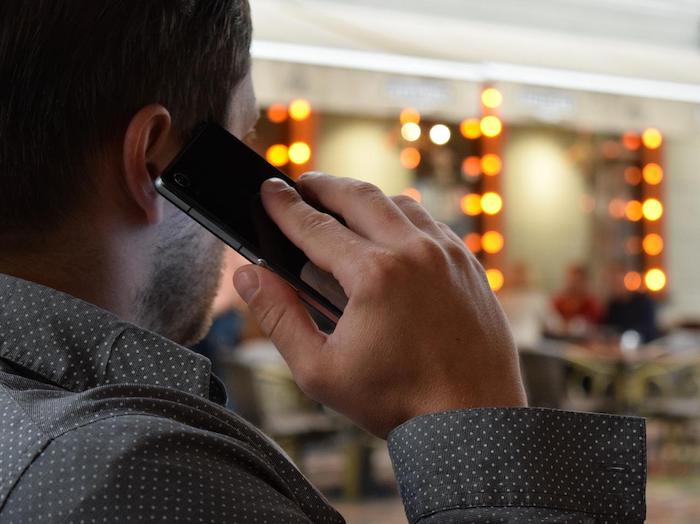
These days, our whole lives are connected to our phones and it can be difficult to imagine getting through the day without this device.
As a result, you may be wondering whether you can bring your phone with you when you enter rehab.
Some rehab clinics in St. Helens allow phones and other mobile devices, while others have strict rules against internet access and regular contact with the outside world.
You may be allowed to bring your phone to rehab but will need to abide by the rules around times of use.
If bringing your phone to rehab is a priority for you, make sure to choose a rehab clinic that allows them.
We recommend that you check with your chosen rehab clinic to understand their policies on phones.
At OK Rehab, we offer free advice from a team of non-judgemental professionals, many of whom are in recovery and understand how hard it can be to change your relationship with addiction.
Simply reach out to our 24/7, confidential hotline on 0800 326 5559.
Accessing drug and alcohol rehab in St. Helens
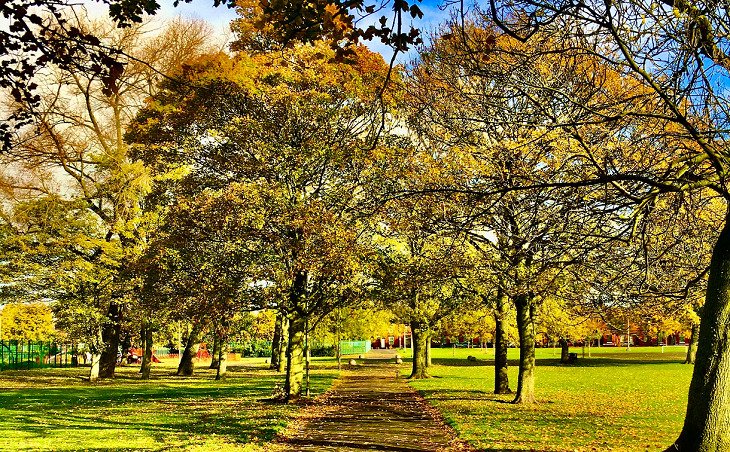
Can I go to rehab if I am pregnant?
If you are struggling with a drug or alcohol addiction and have found out that you are pregnant, it is important that you seek help and support as soon as possible.
Using substances can have many negative effects on your unborn baby, and in the worst case can result in premature birth or even stillbirth. [3]
However, traditional rehab may not be the right place for you.
As part of a rehab treatment programme you will need to detox from all substances, but it can be extremely dangerous for both mother and baby to go through drug or alcohol withdrawals.
Pregnancy causes many changes in the body, so the effects of withdrawal can be even more severe in a pregnant woman.
As a result, you will require professional care by a team specialised in treating addiction in pregnancy.
There are rehab clinics in St. Helens that are designed for pregnant women, with staff who know how to treat the unique challenges that come with this condition.
Am I too young or too old to go to drug and alcohol rehab in St. Helens?

There is no age limit when it comes to recovering from a drug and alcohol addiction at rehab in St. Helens.
You are never too young or too old to seek help.
Many teenagers are reluctant to consider attending rehab as they believe they may grow out of the problem, don’t understand the extent of the issue or feel self-conscious about the idea of being the youngest person in the treatment programme.
However, there are specific rehab clinics for teenagers available in St. Helens, where they will be surrounded by their peers and receive specialised treatment suitable for their age group.
Teenage addiction is a real and growing problem, and if not addressed quickly may only worsen as they get older.
Likewise, addiction among older people is becoming increasingly common.
Some may have become dependent on prescription painkillers, while others may have been struggling with a drug or alcohol addiction for many years. [4]
No matter your age, you can recover from an addiction at drug and alcohol rehab.
How long does drug and alcohol rehab in St. Helens last?

Committing your time to recovering at a drug and alcohol rehab is a worthwhile endeavour, as it is the most effective way to treat an addiction.
The shortest programme available at drug and alcohol rehab is a supervised home detox, which allows you to undergo the detox process from your own home while supervised by a medical professional.
This programme lasts for approximately 7-10 days depending on the severity of your addiction.
Next is the 30-day programme, which is the most common length. This allows time to undergo a detox and attend counselling for a minimum of three weeks.
Many rehab clinics also offer a 60-day treatment programme if you believe you will require a longer stay.
The longest treatment programme available at drug and alcohol rehab in St. Helens is the 90-day programme, which allows for more time spent in counselling and a longer detox if necessary.
At OK Rehab, we offer free advice from a team of non-judgemental professionals, many of whom are in recovery and understand how hard it can be to change your relationship with addiction.
Simply reach out to our 24/7, confidential hotline on 0800 326 5559.
How much does drug and alcohol rehab in St. Helens cost?

When planning to attend rehab, you will need to know how much you can expect to pay for your treatment.
While every clinic is different, we can help to give you a general idea.
A supervised home detox is the cheapest option, and this can range from £1,000 to £2,500 for a 7-10 day programme.
The most popular treatment length of 30 days costs an average of £15,000 which works out to roughly £500 per day.
Next is the 60-day treatment programme, which costs around £30,000.
Finally, the longest option costs roughly £45,000 for a 90-day treatment programme.
Read below to understand the factors behind the price of drug and alcohol rehab in St. Helens and why the prices may be higher than you expect.
Why is rehab so expensive?
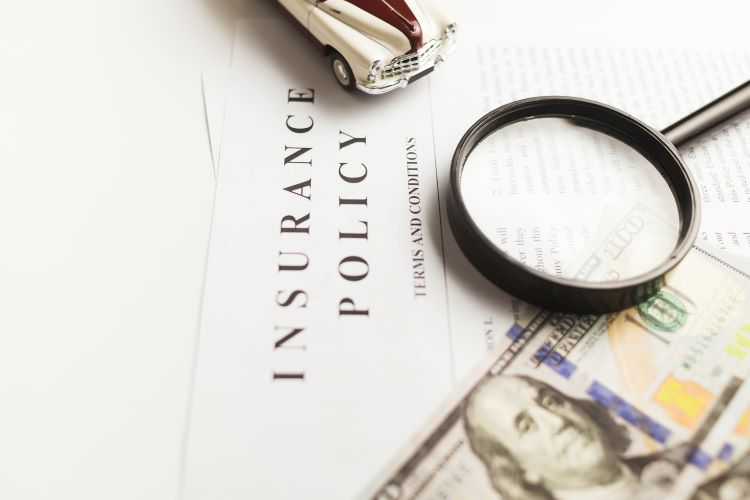
You may be shocked at the prices of even the cheapest drug and alcohol rehab in St. Helens, and struggle to understand how it can be so expensive.
Addiction treatment can quite literally save your life – however, it is not recommended to get into debt to fund your treatment as this can cause more problems once you leave rehab.
If you don’t have the funds for rehab you may wish to ask for help from your friends and family, claim on your health or employee insurance or crowdfund for donations online.
The ins and outs of running a rehab clinic can be extremely expensive, particularly when they are committed to providing high-quality care and treatment.
Some of the costs of running a drug and alcohol rehab in St. Helens include:
- Staff salaries
- Cleaning
- Medications
- Insurance
- Groundskeeping
- Staff training
- Room and board
- Food and drink
- Maintenance of amenities
Addiction rehab may be expensive, but in the long-term you will be able to reap the benefits.
Remember, you cannot put a price on your health.
How can I get someone else to go to rehab?

Getting yourself to take the steps towards checking into rehab is difficult enough, so how can you get a friend or family member to acknowledge that they need help with substance use?
Sometimes you can’t do it alone, so getting together with other close friends and family members and holding an intervention is often the most effective way forward.
An intervention is a meeting between the affected person and their concerned friends and family. It is usually a surprise to the affected person and this is used to the group’s advantage.
Each person will take turns to read aloud a prepared statement. It will detail their personal worries and concerns about the addiction and will ask them to seek professional help.
It can feel scary to hold an intervention, but all your fears will be worth it if your loved one agrees to enter treatment.
At OK Rehab, we offer free advice from a team of non-judgemental professionals, many of whom are in recovery and understand how hard it can be to change your relationship with addiction.
Simply reach out to our 24/7, confidential hotline on 0800 326 5559.
Can I recover from a cannabis addiction at drug and alcohol rehab in St. Helens?

Cannabis is a psychologically addictive drug that can be smoked, vaped or baked into edible items such as cakes and biscuits.
While your body may not form a physical dependency on this substance, your brain may continuously seek out the relaxed and pleasurable sensation that cannabis can provide and cause you to become addicted.
Cannabis addiction can be treated at drug and alcohol rehab in St. Helens through a combination of intensive counselling and time.
It is possible to recover and get your motivation and drive for life back again.
Can I recover from a cocaine addiction at drug and alcohol rehab in St. Helens?

Cocaine is usually seen as a white powder that is snorted, although it can be heated up with baking soda and smoked.
It can make you feel confident and energetic, but it can also increase your risk of suffering from heart failure and other physical and mental health conditions.
Cocaine is highly addictive and requires a full detox along with counselling and prescribed medication in many cases.
It is possible to treat a cocaine addiction at drug and alcohol rehab in St. Helens and learn how to live a balanced life without the use of stimulants.
At OK Rehab, we offer free advice from a team of non-judgemental professionals, many of whom are in recovery and understand how hard it can be to change your relationship with addiction.
Simply reach out to our 24/7, confidential hotline on 0800 326 5559.
Can I recover from an alcohol addiction at drug and alcohol rehab in St. Helens?

Alcohol is the most commonly-used drug in the UK, and is also the substance that causes the most problems.
An alcohol addiction can be deadly, and many people frequently drink outside the recommended limits or engage in binge drinking on a regular basis.
Alcohol can make you feel more relaxed and confident but it can also cause confusion, impaired judgement, depression and sudden aggression.
While alcohol is legal, it can cause many physical and mental health problems and is also highly addictive,
If you have an alcohol addiction, you will need to undergo a supervised detox before attending regular counselling sessions and creating a relapse prevention plan.
Can I recover from a heroin addiction at drug and alcohol rehab in St. Helens?

Heroin is one of the most powerfully addictive substances available, and many people have lost their lives to this cruel substance.
It is commonly seen as a tar-like substance that can be injected, and causes feelings of intense euphoria and pleasure.
Many people spend their lives chasing the initial high that they experienced, sinking deeper into the addiction.
You may be offered maintenance therapy for heroin addiction, which is when you are weaned onto a less addiction substance such as methadone which gives a similar feeling to heroin.
Some people stay on maintenance therapy for life, while others will gradually detox and become completely sober.
At OK Rehab, we offer free advice from a team of non-judgemental professionals, many of whom are in recovery and understand how hard it can be to change your relationship with addiction.
Simply reach out to our 24/7, confidential hotline on 0800 326 5559.
Can I recover from a prescription painkiller addiction at drug and alcohol rehab in St Helens?

Many people are unaware that they can become addicted to medication that has been prescribed by a doctor.
In fact, some of the most addictive substances in the world are prescription medications. This is precisely why they are so closely regulated and monitored.
It’s very important to only use prescription medication as your doctor and the manufacturer originally intended.
Prescription painkiller addiction can be successfully treated at drug and alcohol rehab in St. Helens.
Like other substances, they require a complete detox before intensive counselling, relapse prevention and aftercare to give the best chances of long-term recovery.
What is the HALT technique that is taught at drug and alcohol rehab in St. Helens?

One of the most common techniques that is taught at drug and alcohol rehab as part of your relapse prevention plan is the HALT technique.
HALT stands for Hungry, Angry, Lonely and Tired and can be a very effective way of keeping on top of your needs and ensuring that you don’t return to a vulnerable place.
It is recommended that you regularly check in with yourself and think, ‘HALT.’ – Are you hungry? Are you angry? Are you lonely? Are you tired?
These normal human sensations can leave you feeling exposed and more vulnerable to relapse.
Making sure you eat regularly, stay as calm as possible, build relationships and community and get enough rest can help you to feel strong and capable enough to get through any cravings.
Can I go back to rehab if I have relapsed?

Relapse is a common part of the recovery journey, with up to 60% of people who attend a treatment programme reporting that they have relapsed at some point after rehab.
Try not to be discouraged. You are not alone, and this doesn’t have to mean the end of your recovery.
You should first assess the situation and determine the extent of the relapse. If you had one drink, you may be able to get back on track by yourself. If you slipped into a weeks-long binge, a return to rehab may be helpful.
If you feel that you would benefit from re-entering treatment and going back to rehab after a relapse, there is absolutely no shame in this.
Continuing your treatment can help to develop and sharpen the new skills that you learned the first time around and give you the confidence to continue pushing forward.
Alternative Services to Rehab in Herefordshire
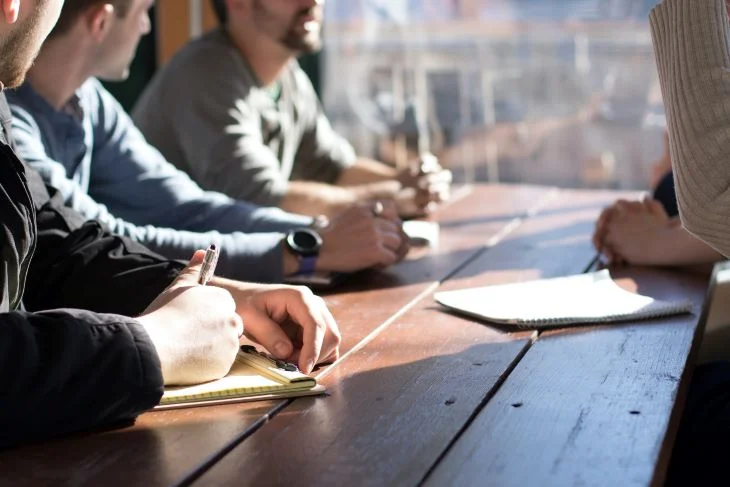
Below are a few examples of charities and publically-funded organisations you can reach out to as an alternative to rehab:
1. Child and Adolescent Mental Health Services (CAMHS)
Address:2gether NHS Foundation Trust, Benet Building, Ruckhall Ln, Belmont HR2 9RP
Telephone: 0143 222 04 50
2. Turning Point Herefordshire Drug and Alcohol Recovery Service
Address: Beaumont House, 1 Offa Street, Hereford, HR1 2LH
Telephone: 0300 555 07 47
Website: https://www.cqc.org.uk/location/1-10645294256
3. Alcoholics Anonymous Herefordshire
Address: Putson Baptist Church, 41 Web Tree Ave, HR2 6HQ
Telephone: 0179 230 19 07
Website: https://www.alcoholics-anonymous.org.uk/AA-Meetings/Find-a-Meeting/Hereford
4. The CLD Trust
Address:The CLD Trust, 20 East St, Hereford HR1 2LU
Telephone: 01432269245
Website: https://www.thecldtrust.org/
5. Herefordshire Mind
Address:130-132 Widemarsh Street, Heffernan House, Hereford, HR4 9HN
Telephone: 01432271643
Website: https://herefordshire-mind.org.uk
Other organisations of interest include Narcotics Anonymous and Cocaine Anonymous. These organisations can provide drug and alcohol guidance. For mental health support, visit Young Minds, Rethink Mental Illness, Samaritans, and Papyrus.
Advice & Referrals from Rehab Recovery

The rehabs we can refer you to are available across Herefordshire in towns such as Hereford, Kington, Ledbury, Leominster, Bromyard, Ross-on-Wye, Pembridge, Eardisland, Hay-on-Wye, Weobley, Symonds Yat, Kilpeck, Brockhampton, Richards Castle, Clehonger, Hampton Bishop, Castle Frome, Mordiford, Eardisley, Bosbury, Madley, Ewyas Harold, Staunton on Arrow, Lugwardine, Leinthall Starkes, Preston on Wye, Orcop, Fromes Hill, Brobury, Bishop’s Frome, Kinnersley, Brockhampton, Little Cowarne, Abbey Dore, Peterchurch, Wormsley, Tyberton, Saint Weonards, Credenhill, Leinthall Earls, Yarkhill, Withington, Kingstone, Bredwardine, Brilley, Leintwardine, Aymestrey, Pencombe, Dilwyn, Mansell Gamage, and Kentchurch.
All of the rehabs we recommend are regulated by the Care Quality Commission (England and Wales) or the Care Inspectorate (Scotland).
At OK Rehab, we offer free advice from a team of non-judgemental professionals, many of whom are in recovery and understand how hard it can be to change your relationship with addiction.
Simply reach out to our 24/7, confidential hotline on 0800 326 5559.

References
[1] https://www.nhs.uk/live-well/addiction-support/addiction-what-is-it/
[2] https://www.ncbi.nlm.nih.gov/pmc/articles/PMC3767415/
[3] https://www.ncbi.nlm.nih.gov/pmc/articles/PMC4870985/
[4] https://www.ncbi.nlm.nih.gov/pmc/articles/PMC4146436/





